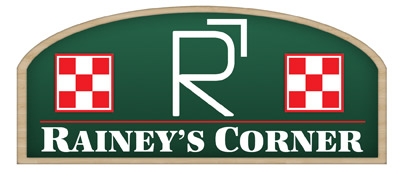
Nutrition Tips during Preconditioning Programs for Cows
Thinking about developing and implementing a calf preconditioning program?
Nutrition is a critical component of any successful preconditioning program, according to Oklahoma Cooperative Extension Service livestock specialists.
Performance during the preconditioning, stocker, and feeding phases begins with nutritional management of the cow before calving and continues through the entire production system, they explain. Preweaning and weaning management, post-weaning nutrition, grazing programs, supplements and mineral nutrition are all important in producing “bullet proof” calves, they say.
It is important for you to define and prioritize your objectives for the nutritional management program. These objectives might include:
- Optimizing condition and health of cattle for the next phase.
- Producing added weight gain at a low cost.
- Marketing home raised feed resources through the preconditioning program.
- Minimizing the risk of digestive disorders and disease during the weaning and preconditioning phase.
- Achieve a specific target weight for the cattle by sale or shipping date.
- Accomplish the above objectives with minimal labor and equipment investment.
You need to be cautious not to over-condition cattle that might be destined for a lower level of nutrition, such as dry wintering on native pasture or hay with minimal supplementation.
In these situations, much of the weight and condition gained during preconditioning will be lost, resulting in poor overall production efficiency.
Cattle buyers with orders for cattle going to this type of situation will not be interested in paying very much for fleshy calves that have been fed to gain more than two pounds per day. On the other hand, if the cattle are more likely to go directly to high quality pasture or a feed yard where a high concentrate ration is fed, a higher rate of gain and increased condition may be justified.
Regardless of your situation, the most important thing you can do for your calves is provide a diet designed to develop frame and muscle. Land O'Lakes products have been researched and formulated to do just that without adding too much fat or condition.
Preconditioning feeds must be highly palatable. Newly weaned calves will be more concerned about the absence of their mothers than eating hay or processed feeds. Feed intake will be low for three to four days, especially if the calves had not been previously exposed to feed in bunks or creep feeders.
Grazing Pasture
Depending upon your situation, the best preconditioning nutrition program might be to turn calves back out on high quality pasture four to seven days after they have been weaned.
Calves should have access to the highest quality pasture available. Remember that forage quality and quantity can vary dramatically, depending on forage species, growing conditions, previous grazing management and season.
If quality pasture is not available, hay coupled with supplementation or concentrate feed programs may be an alternative.
Cattle nutrition experts with your Land O’Lakes Feed cooperative can help you develop the right nutrition program for all production phases of a preconditioning program.
So if your feeding and management program requires a supplement such as Steakmaker® Stresscare, or a complete feed program, Land O’Lakes Feed offers you a wide range of products to match your operation’s specific requirements. Cattle nutrition specialists also provide supporting services to help you stay competitive. Contact your local Land O'Lakes Feed cooperative today for more complete information.
